10 best AI apps for Android and iOS
AI apps are hitting it off in a big way right now. It started with image generation and has since moved to chat, search, and other areas. Google has its own service, Bard, while many other modern apps use Chat GPT. However, there were AI apps before the Chat GPT craze, and we’ll list some of those as well. This is a swiftly growing category, so we’ll likely update this list regularly until some true champions emerge. Here are the best AI apps for Android and iPhone.
The best spy apps for Android
AI Mirror
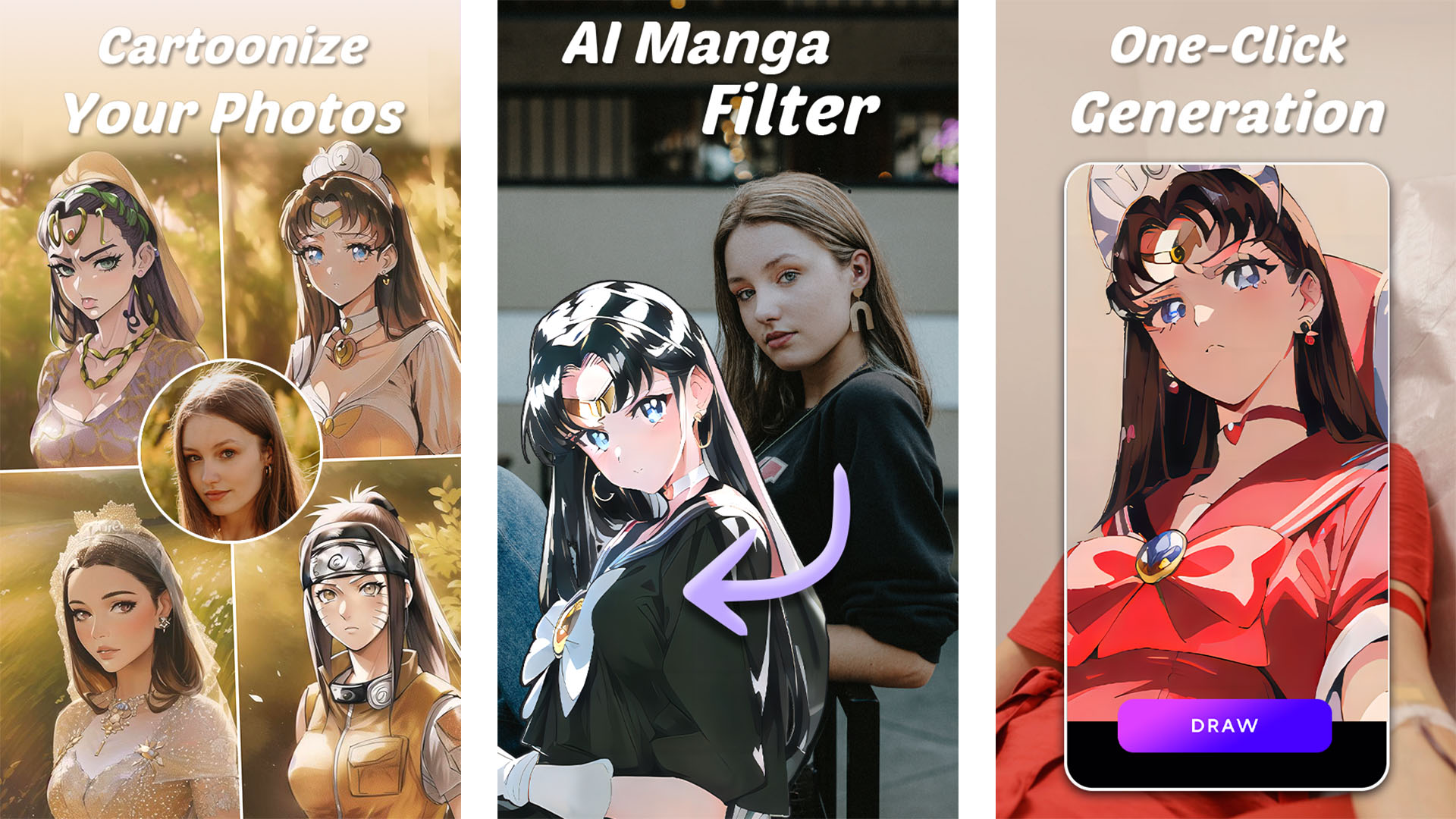
This AI image generator uses images you upload to the service to generate new images with different filters.
What we like:
- Uses a wide variety of filters to make your images look entirely different.
- Among the better AI-generated filter apps.
- While your mileage definitely varies, it made some pretty decent looking images in our testing.
What we don’t like:
- The ads are aggressive, sometimes don’t load, and the subscription is fairly expensive.
- When it works, it works great. When it doesn’t work, it really doesn’t work well. There seems to be no in-between.
AI Mirror is one of the better examples of AI image manipulation. In other words, it uses AI to generate filters for existing photos. During our testing, it worked pretty well most of the time, but the free version has some obnoxious advertising, and the subscription to get rid of them is fairly expensive. Aside from that, it does what it says. You add an image, pick a style, and the image is redrawn with AI to fit that style. It seems to have some issues with skin tone, and it could definitely do pets better, but this is a young technology, so we hope it gets better sooner rather than later.
Ask AI

This is one of the Chat GPT apps that does the kinds of things you see on the Internet all the time.
What we like:
- Works in most languages.
- Uses Chat GPT.
- A rare AI app that has a lifetime license.
- It actually works really well.
What we don’t like:
- The weekly subscription is pretty expensive.
- Like all AI chat apps, some inputs may not generate the expected output, so you may find yourself rephrasing some questions.
When AI chat apps first came out, they were universally bad. So, it was nice to finally stumble onto something that actually works pretty well. Ask AI does what it says. You ask the Chat GPT-powered AI bot a question, and it answers you. That’s about all it does. It’s fun to ask it various questions and get the answers. I fact-checked the 20 messages I sent, and they were all accurate. Granted, they were easy questions, but it’s still encouraging. Some questions may need to be rephrased to get the AI to respond as you like, but most AI chat apps are the same way. The premium options are a little weird as well. We don’t often see apps go straight from weekly subscriptions to lifetime licenses like that.
Imagine
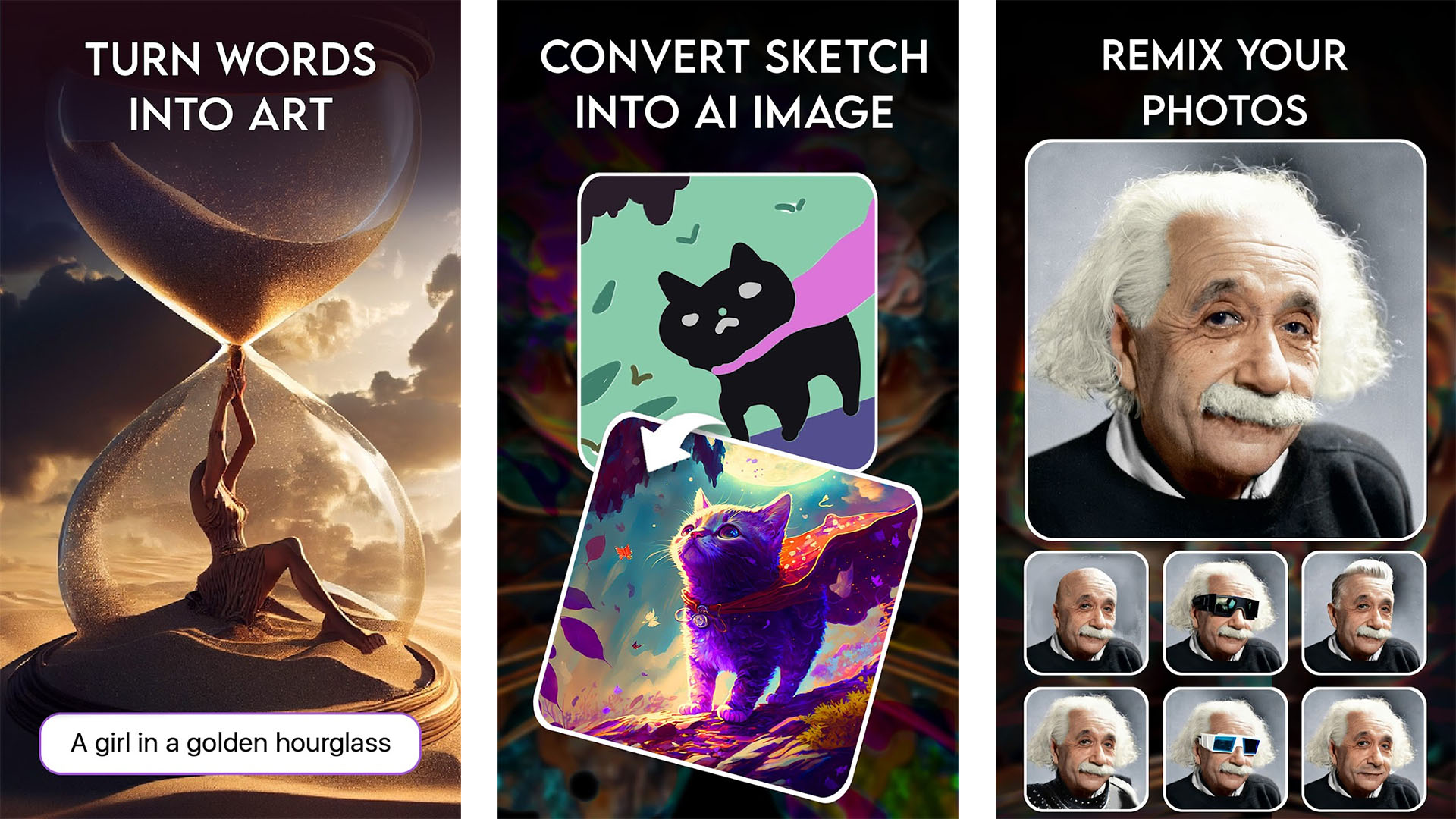
- Pricing: Free / $4.99 per week / $38.99 per year / $109.99 once
- Platforms: iOS (App Store) and Android (Google Play)
What we like:
- The app generated most of the things we asked for without issue.
- The free version has ads, but they’re not nearly as annoying as some other apps in this space.
- All of the images appear to be in relatively high quality.
What we don’t like:
- You have to watch an ad for each image you generate, and the subscriptions are pricy.
- Sometimes the results aren’t quite what you expect. As an example, I asked for Yoshi (from the Mario universe) with a samurai sword with the Realistic filter. It drew me a Yoshi beanie-style toy with a samurai sword behind it. Technically accurate, but not what I was hoping for.
Imagine is one of those AI art generator apps that work with just words. You simply tell it what you want to draw, and it’ll draw it for you. We tried over 20 examples, and it executed each one, albeit not necessarily with the style that one expects. I cite my experience with making samurai Yoshi as an example. The free version is very tolerable. You watch a video ad and are rewarded with one image per ad watch. You can alternatively pay the weekly, yearly, or lifetime prices to avoid the ads. This works surprisingly well and quite quickly compared to many of its competitors. PicSo (Google Play and iOS) also does this pretty well, so you can choose between the two.
Microsoft Edge Browser and Bing Search
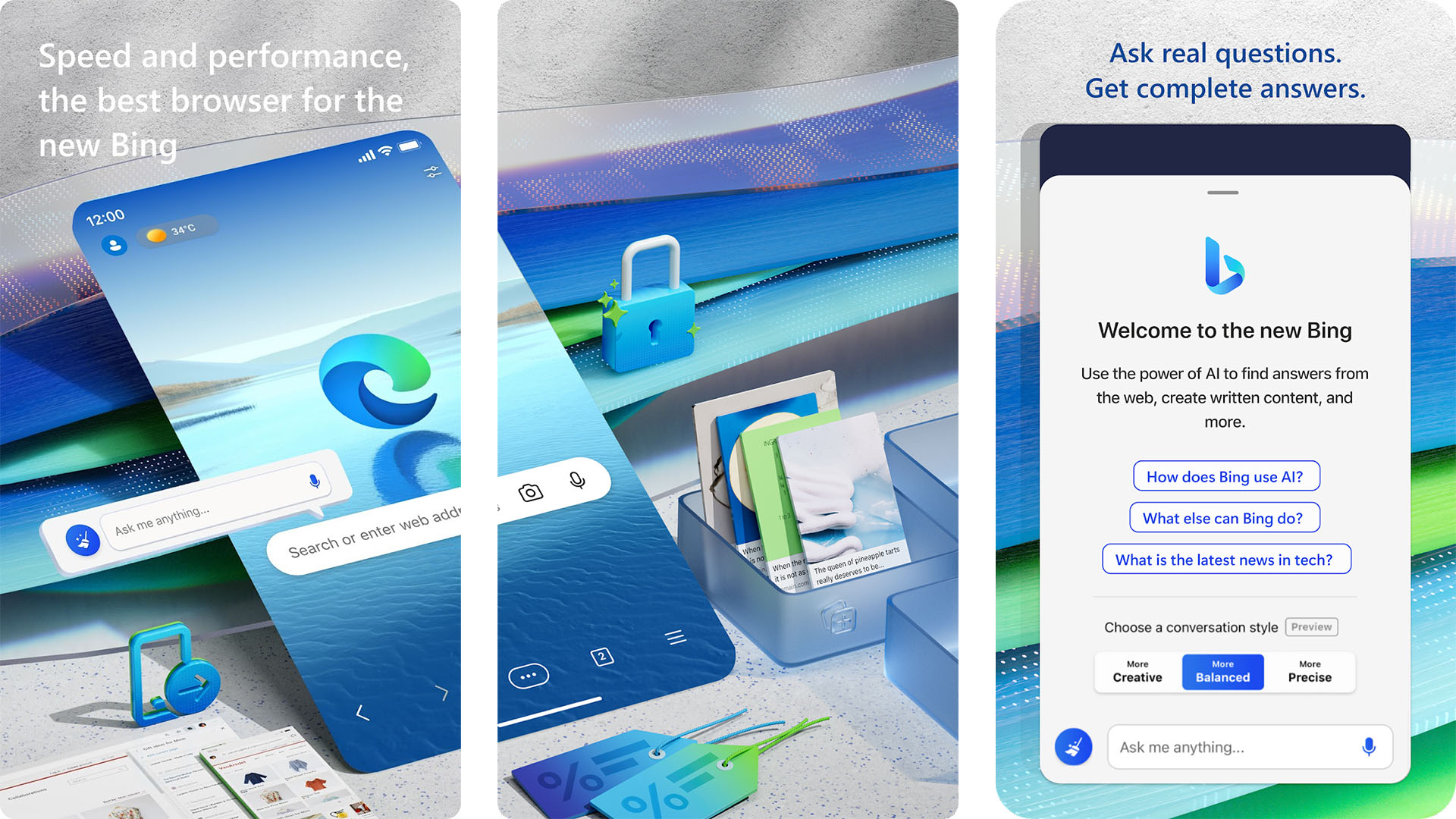
Microsoft Edge Browser is the first major player to bring AI-powered search to a mainstream product.
What we like:
- The AI-chat search style actually works pretty well.
- As a browser, it’s quick, has add-ons like ad blocker, and syncing with the desktop version.
- We expect Microsoft to continually improve this technology moving forward.
What we don’t like:
- Moving away from Google Search is a tough ask for many people who are quite comfortable with Google’s ecosystem.
- As is the case with all AI-generated things, there are ads, and you can’t pay your way out of them.
Microsoft Edge is an underrated browser. It works rather well, and it lets you tie into a different ecosystem than Google or Apple. Microsoft made huge waves in 2023 when they introduced Chat GPT-powered search into Bing. It eventually integrated this tech into the mobile versions of Edge. It works like most chatbots. You ask it for something, and it’ll search the web for you. It’s not 100% accurate, so we recommend fact-checking, but it seems to be fairing better in its early days than Google Bard. We expect Microsoft to continue pressing its lead in the AI space, and you can be a part of it with this browser.
Microsoft SwiftKey Keyboard
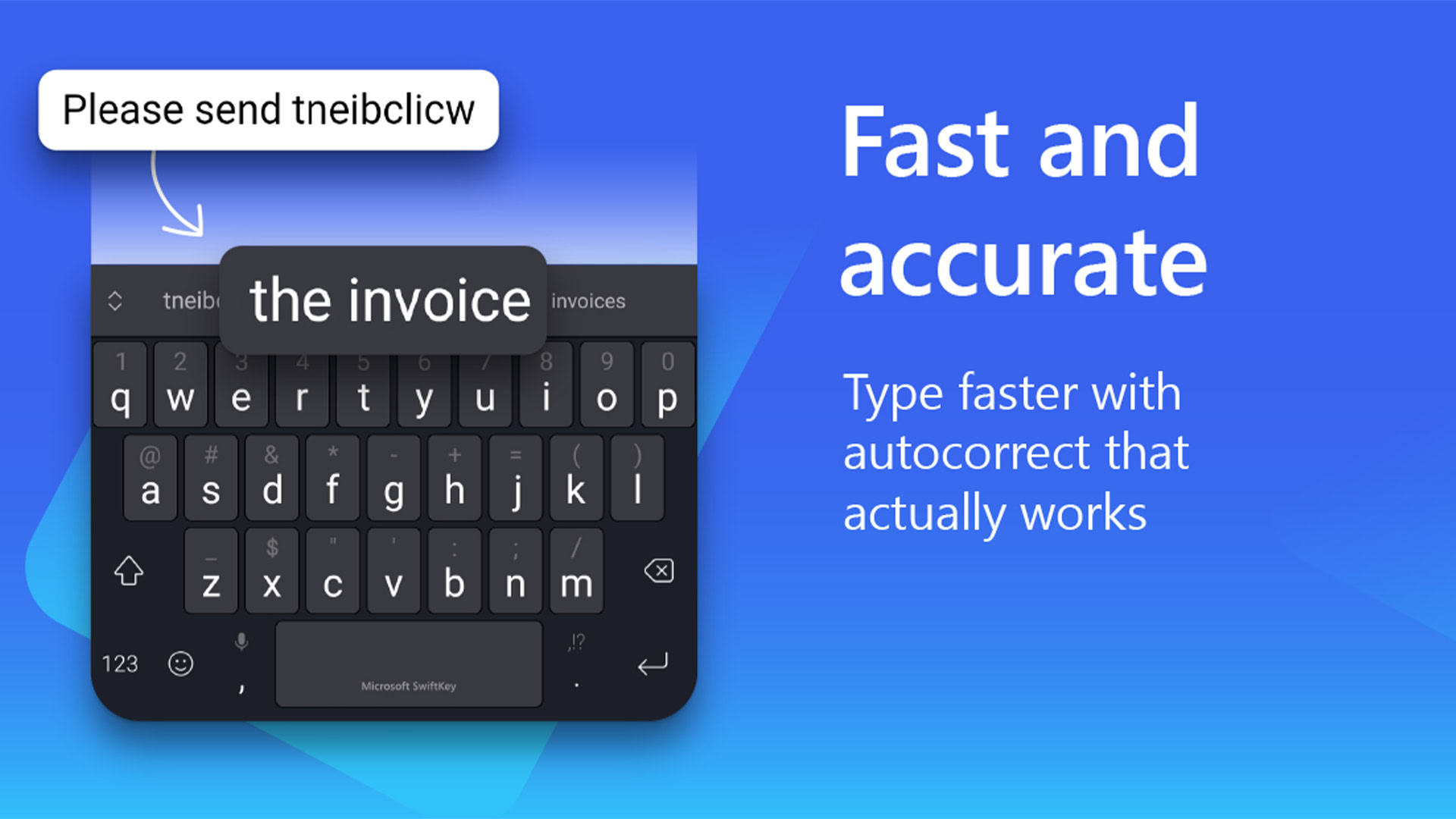
It’s not a name-brand AI, but SwiftKey has long used AI to help with better predictions and stronger auto correct.
What we like:
- It works excellently, with good auto correction and decent word predictions.
- There is a data backup system so you can bring what it learns with you to new devices.
- The app is entirely free, with no in-app purchases.
What we don’t like:
- Limited themes and Material You make it a bit boring to look at.
- It doesn’t use Chat GPT or any of the modern AI models, but it may one day.
Microsoft SwiftKey has been using AI for ages to help the typing experience. It uses AI to learn how a person types and then recommends words and auto corrections based on what it learns. The keyboard works pretty well in practice, although we do think Gboard is a bit smoother overall. In any case, you won’t see a difference right away, but you will over time. The only downside with this one is the AI can learn some of your bad habits, so it may start recommending your typoes instead of the typo corrections. This doesn’t use name-brand AI at this time, but with Microsoft’s massive push, it likely will eventually.
Gboard is also a great keyboard, and Google is working to add AI to it as well. We’ll monitor and update as needed.
Nova
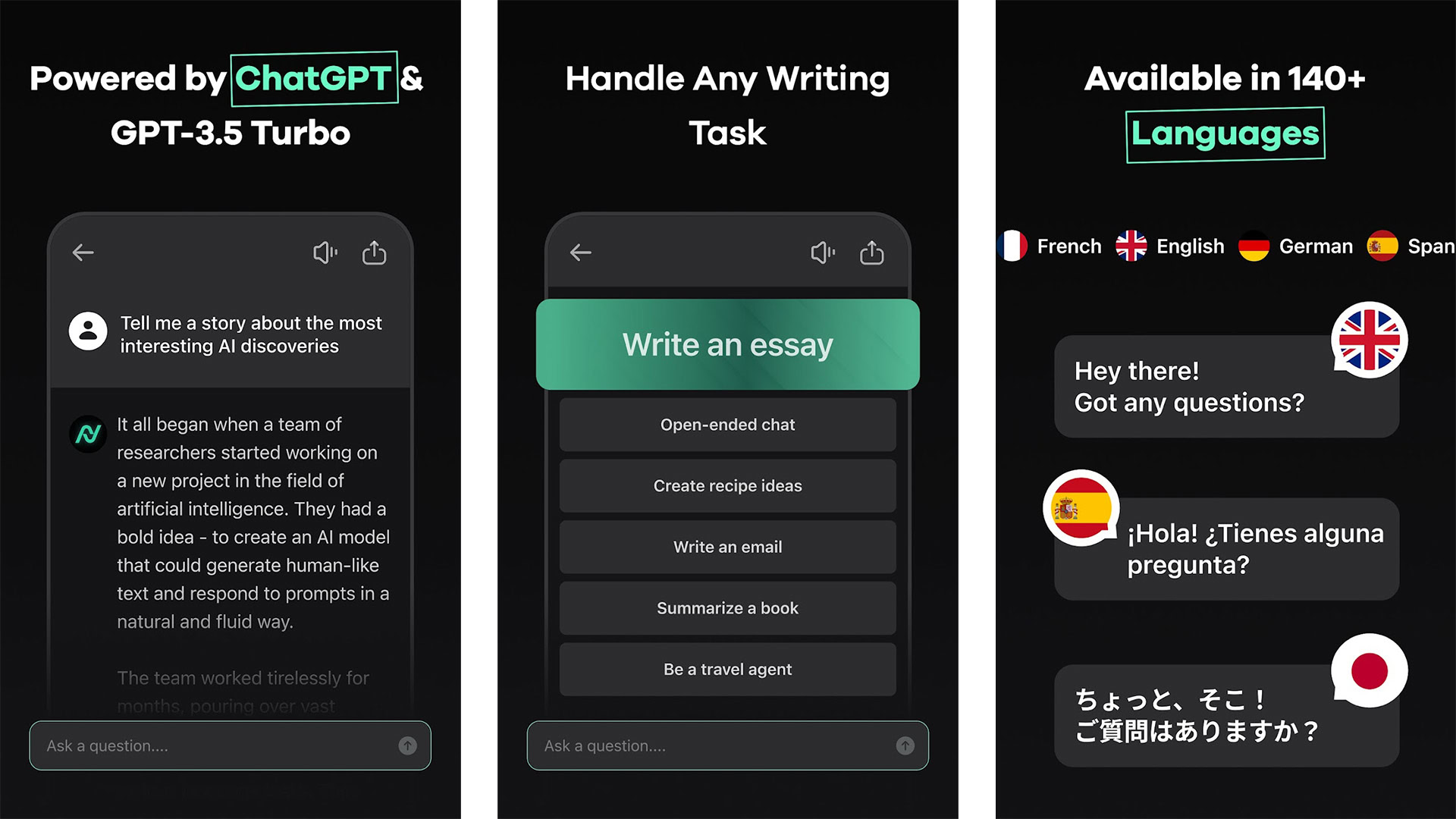
This Chat GPT 3.5-powered AI chatbot competes well with Ask AI. Both do almost the same thing.
- Pricing: Free / $7.99 per week / $59.99 per year
- Platforms: iOS (App Store) and Android (Google Play)
What we like:
- It works well and is reasonably quick.
- The streamlined UI looks nice and makes responses easy to read.
- Works in most languages and with most questions.
What we don’t like:
- This is one of the more expensive examples of a Chat GPT-powered chatbot.
- Some more complex questions may return errors.
Nova is another good example of Chat GPT in an app format alongside the previously mentioned Ask AI. It uses Chat GPT-3.5 to answer user questions, and it does so pretty well. We asked a few dozen different things and the answers were correct. While we didn’t have any problems with it, some other users have reported that overly complex questions may return an error code, so that’s something you’ll want to test for. Otherwise, it looks like most AI chatbot apps. It’s just a single conversation box where you ask questions and get answers. The free version is limited, and the premium version is fairly expensive. There is no lifetime access here like there is with Ask AI.
Genie (Google Play and iOS) is also pretty good in this space, and if Nova or Ask AI isn’t working, give that one a try.
Snapchat
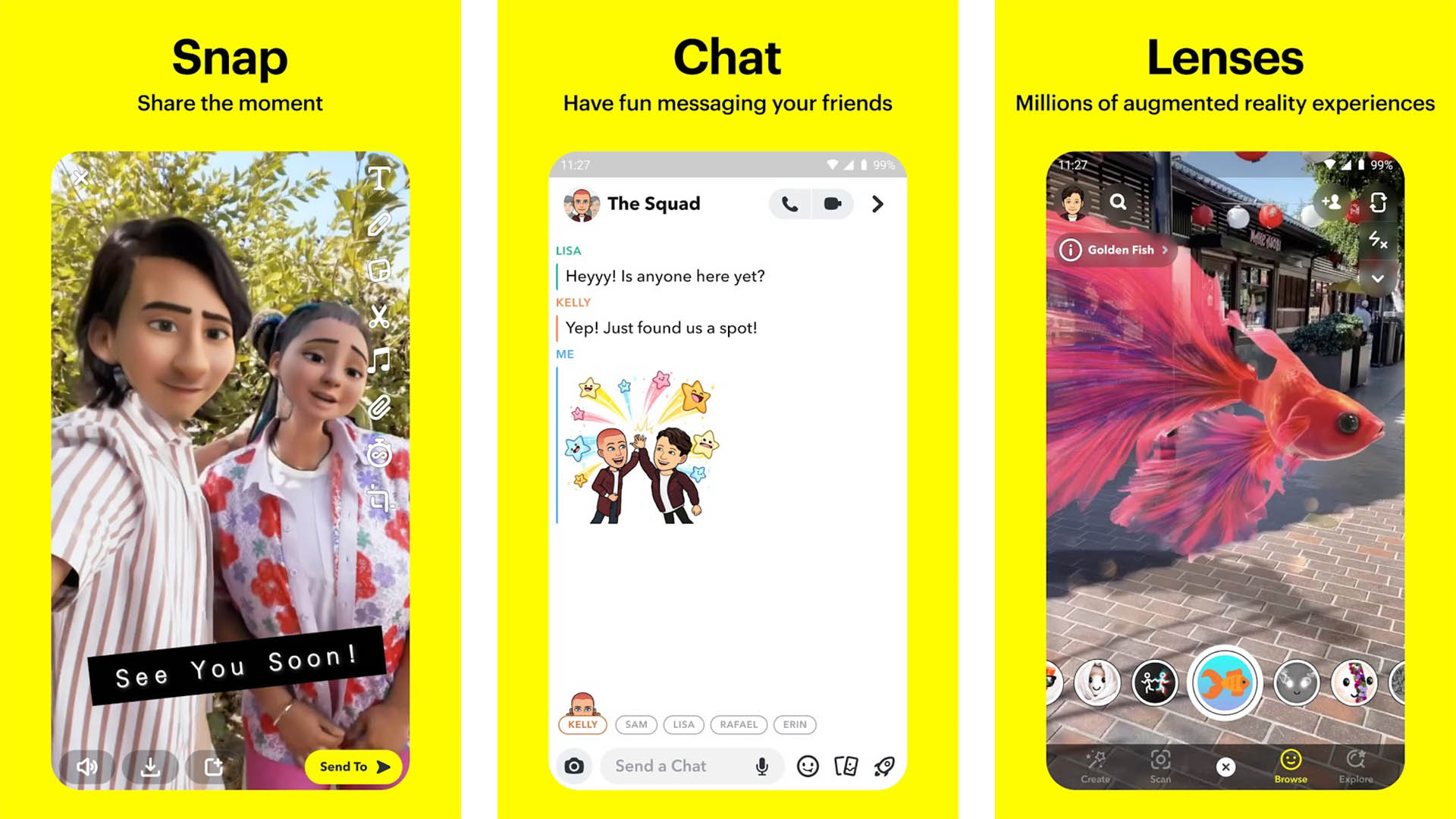
Snapchat is not only a pioneer in AI-powered image filters, but also now includes a Chat GPT bot for its users.
- Pricing: Free / $3.99 per month / $39.99 per year (add $3.99 per month for the AI chatbot)
- Platforms: iOS (App Store) and Android (Google Play)
What we like:
- One of the few apps that can do AI-powered image filters and also a Chat GPT-powered AI chatbot.
- Hundreds of millions of people use it, making it a popular messaging service on top of its AI capabilities.
- The filters vary widely and change consistently.
What we don’t like:
- The added cost doesn’t make it any less expensive than other Chat GPT-powered chatbots.
- If Snapchat isn’t your thing, then it isn’t your thing. The chatbot won’t change that.
Snapchat is a popular messaging service when you don’t factor in any AI stuff. However, the service has long been a bastion of AI-powered image filters, and the inclusion of its My AI chatbot with Chat GPT puts it ahead of most other services in terms of AI usage. By now, most of you know how Snapchat works. You take pictures or videos, send them to friends, and use that to communicate. Many people covert their Snapchat streaks, and the premium version can let you keep them even if you miss a day. We’re sure other services will catch up in the coming months, but for now, Snapchat sits alone at the top of the AI hill when it comes to messaging.
Socratic
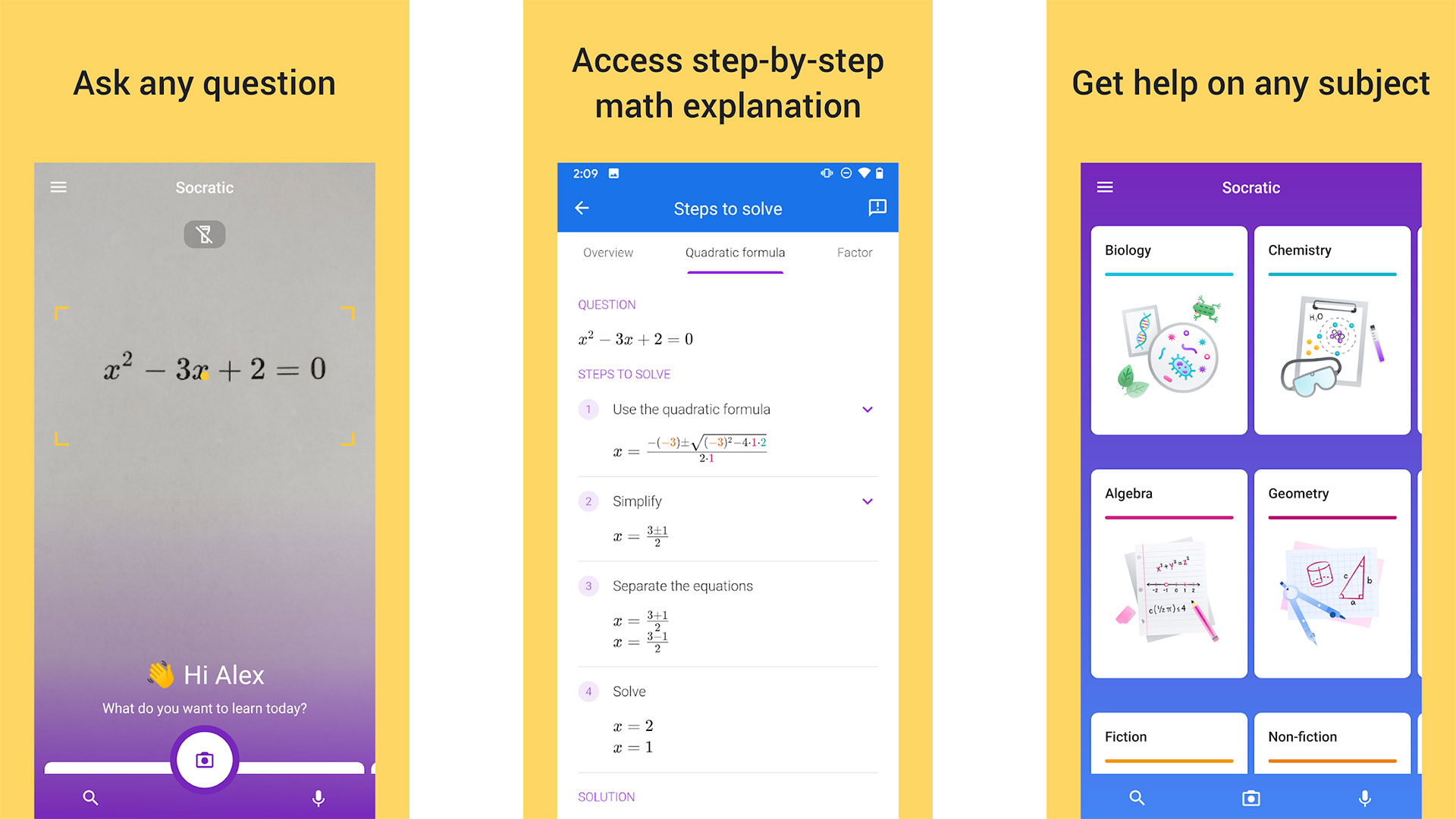
Socratic by Google uses AI to help people understand their school work better. It’s best used for the K-12 stages of learning.
What we like:
- A unique use of AI. It lets you take pictures of your homework and then connects you to resources to help you do it.
- It has a variety of resources for students trying to learn new things.
- There is support for several types of math, science, history, and literature.
What we don’t like:
- It’s not powered by a name-brand AI.
- The iOS version of the app is more consistently updated than the Android version.
Socratic is an excellent educational app from Google. You take a picture of a piece of homework that you’re having issues with. The app then finds the resources to help you solve the problem. Its aim is to help teach you concepts, so it won’t do your homework for you. You can ask it questions about the subjects it supports, and it’ll use online resources to tell you the answer, much like how today’s Chat GPT bots do it. It’s ahead of its time, and we think Google will eventually migrate this over to Bard when it’s ready. It’s a prime candidate for it.
WhatsApp (specifically chatbots)
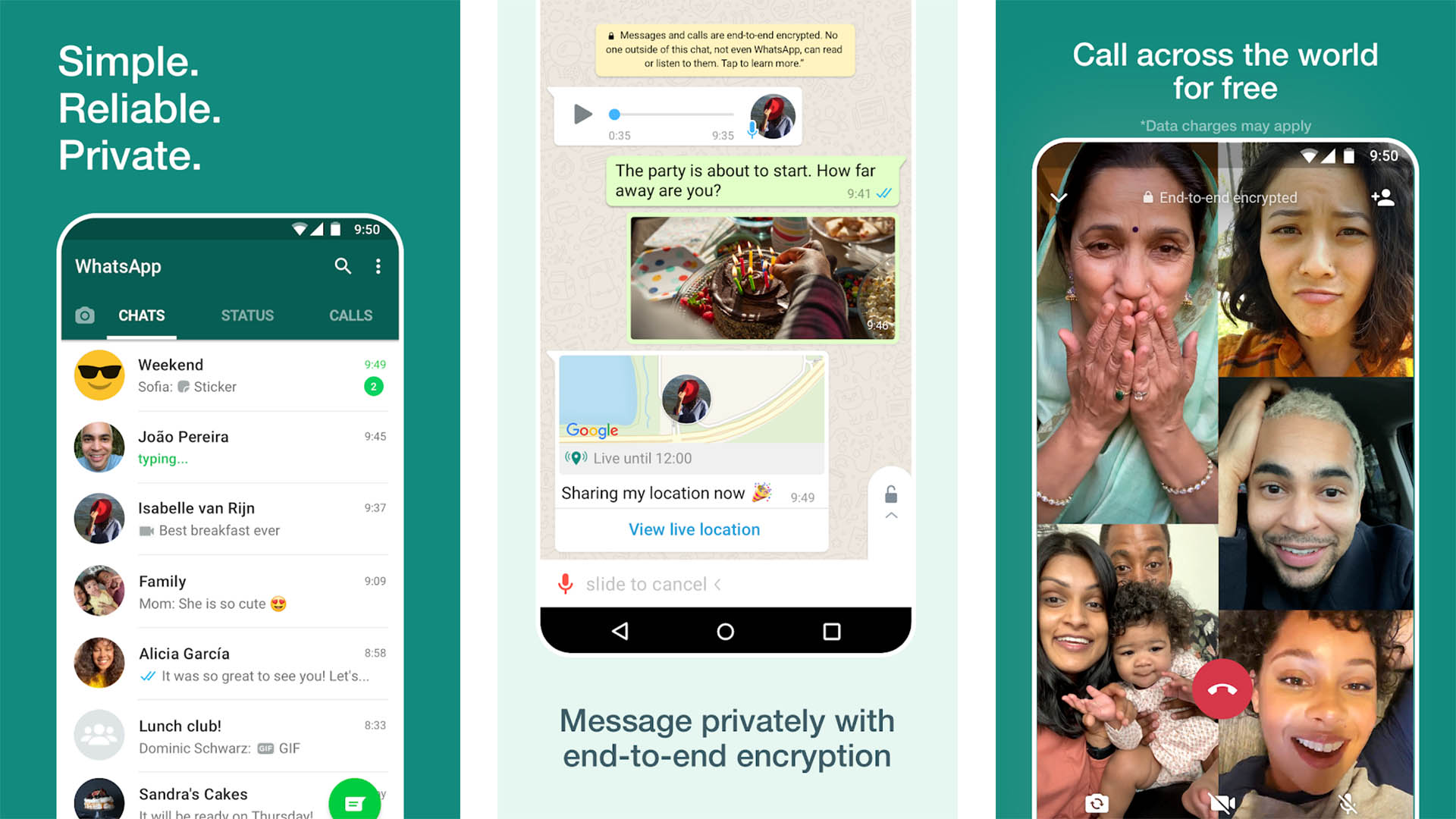
WhatsApp doesn’t have any AI stuff on its own, but AI-powered chatbots are available to everyone.
What we like:
- WhatsApp is one of the most popular chat apps in the world. Tons of people use it.
- There are a few Chat GPT-enabled bots that you can add to WhatsApp conversations.
- They work just as well as the AI chatbot apps on this list, which means you can get the same functionality without another app.
What we don’t like:
- Chatbot prices vary but are usually pretty expensive.
- Competitors like Telegram also have plenty of chatbots, so this isn’t unique to WhatsApp.
WhatsApp (and Telegram) have several Chat GPT-powered chatbots that you can add to your app for the AI chatbot experience. They work a lot like the standalone AI chatbot apps on this list. You ask it questions or talk to it, and it answers you. They work about as well, which makes sense because they’re using the same Chat GPT to perform the work. The bots aren’t free, so you can only have limited interactions while using the free versions. Unfortunately, the pricing structures are a bit weird, with some limitations you don’t see in standalone apps. In either case, WhatsApp and Telegram users can try out Chat GPT without the need to download a separate app.
WOMBO Dream
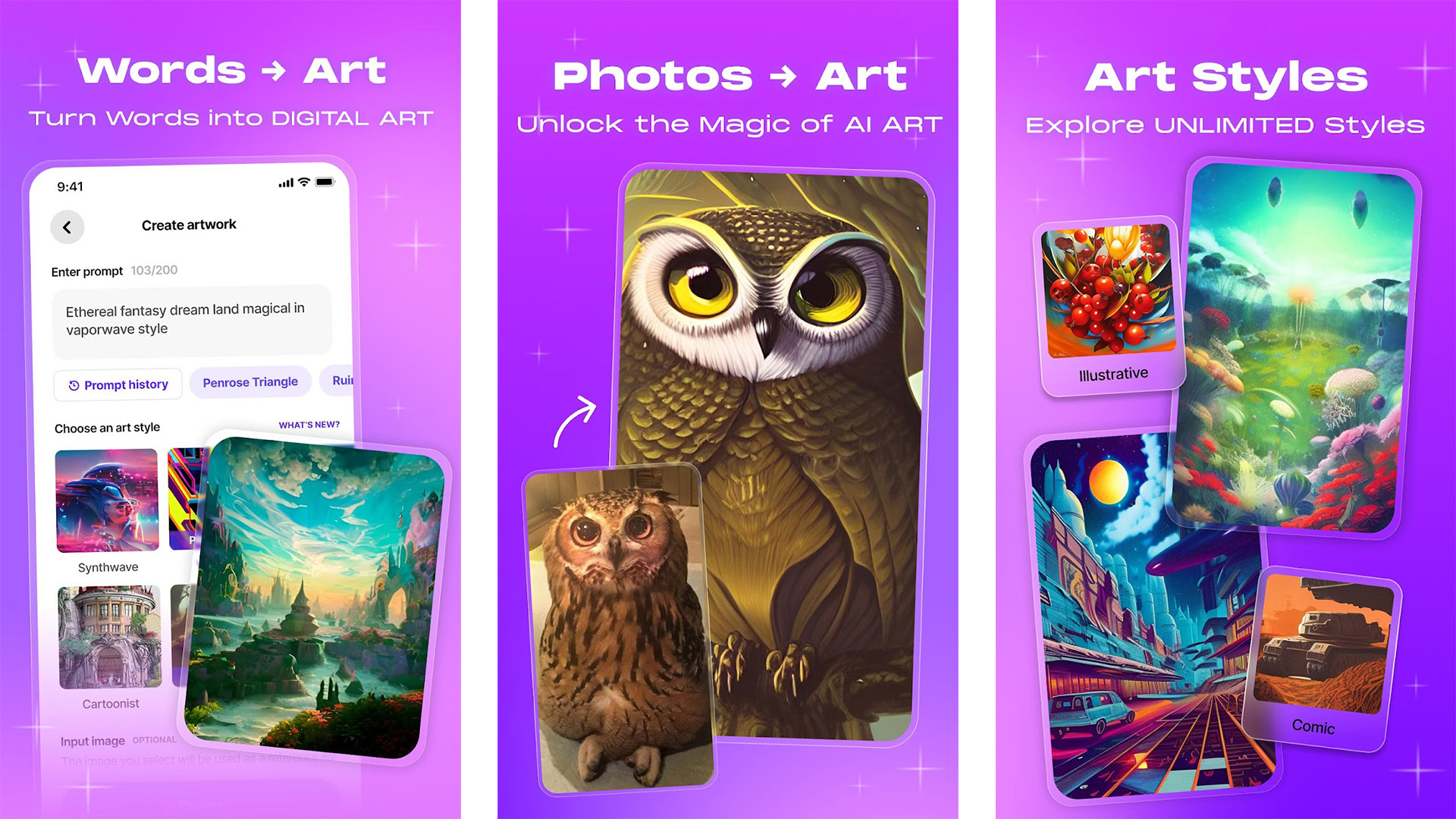
One of the original AI-generated image apps that does it correctly most of the time.
- Pricing: Free / $9.99 per month / $89.99 per year / $134.99 once (iOS prices may vary)
- Platforms: iOS (App Store) and Android (Google Play)
What we like:
- It does what it says. You give it an image or some text, and it’ll generate some art for you.
- There are multiple styles to determine how you want your art to look.
- Images generated are typically of high quality in terms of metrics like resolution.
What we don’t like:
- The pro version is among the most expensive, and the free version feels intentionally lackluster to help promote the full version.
- Like most AI art generators, less specific inquiries may not give you the image you’re looking for.
WOMBO Dream is an AI art generator, and it was one of the first. We covered it in our best Android apps of 2022 list, and it’s still one of the better examples today. It works like the others on this list. You add an image you already have or give it a text prompt. The app then generates art for you. It has the same general upsides and pitfalls as other apps in this category. Sometimes, you don’t quite get the image you expect when you use certain nouns. The free version is slower and has a bunch of ads as well. If you can get passed that, though, this is pretty darn good for what it aims to do. Plus, it’s a bit older than some others, so it’s had time to mature.
If we missed any AI apps, tell us about them in the comments.
For all the latest Technology News Click Here
For the latest news and updates, follow us on Google News.

